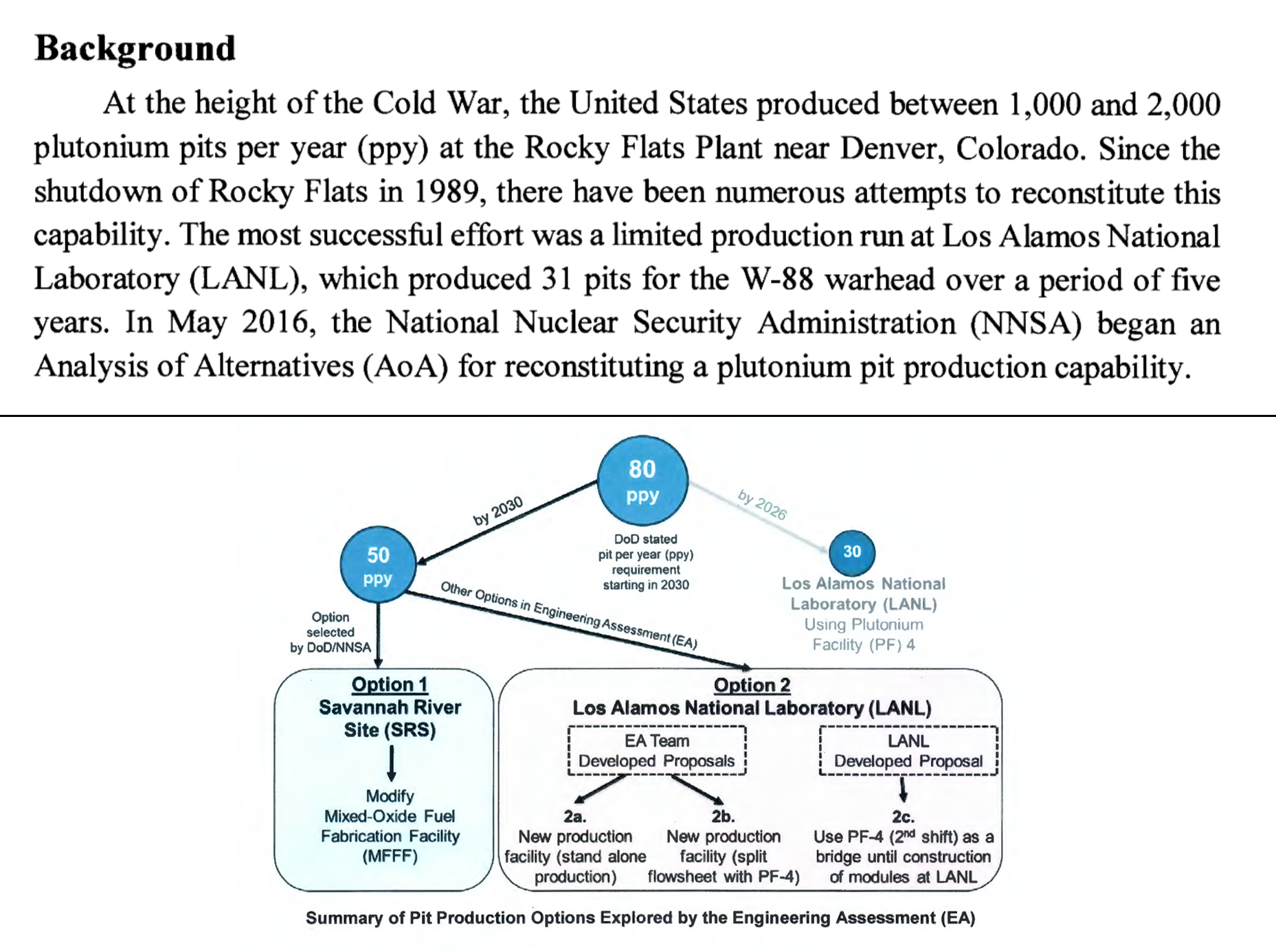Updates
Watchdog Groups Claim Nuclear Agency is Moving Forward to Manufacture New Plutonium Bomb Cores in Violation of National Environmental Law and an Existing Court Order
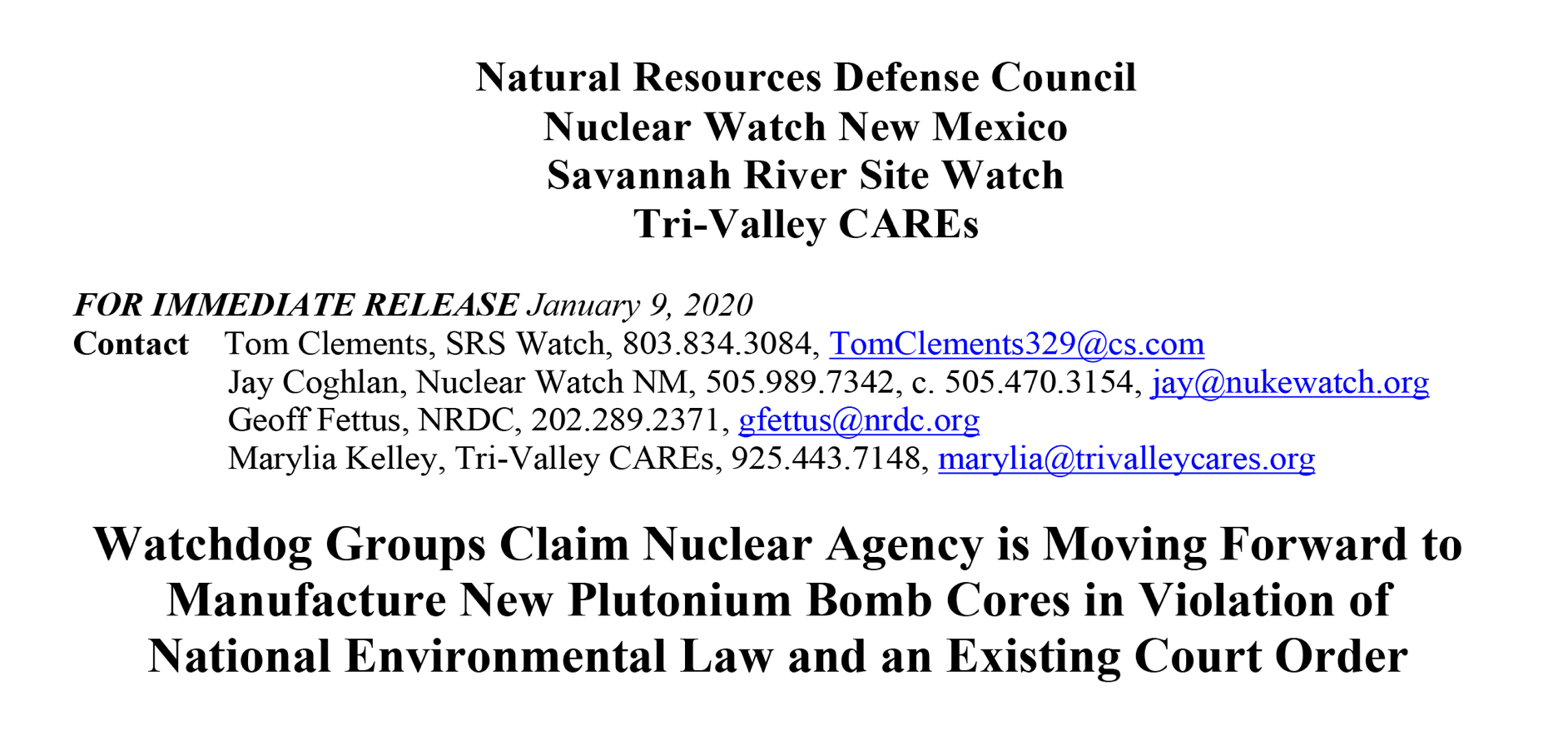 The Department of Energy’s semi-autonomous National Nuclear Security Administration (NNSA) has formally announced that it is proceeding with aggressive plans to expand the production of plutonium pits without required nation-wide “programmatic” public review. The Natural Resources Defense Council, Nuclear Watch New Mexico, Savannah River Site Watch and Tri-Valley CAREs assert this is in direct violation of the legal requirements of both the National Environmental Policy Act and a 1998 court order that stipulates that DOE must prepare a “programmatic environmental impact statement” (PEIS) when it plans to produce more than 80 pits per year. Plutonium pits are the radioactive cores or “triggers” of nuclear weapons.
The Department of Energy’s semi-autonomous National Nuclear Security Administration (NNSA) has formally announced that it is proceeding with aggressive plans to expand the production of plutonium pits without required nation-wide “programmatic” public review. The Natural Resources Defense Council, Nuclear Watch New Mexico, Savannah River Site Watch and Tri-Valley CAREs assert this is in direct violation of the legal requirements of both the National Environmental Policy Act and a 1998 court order that stipulates that DOE must prepare a “programmatic environmental impact statement” (PEIS) when it plans to produce more than 80 pits per year. Plutonium pits are the radioactive cores or “triggers” of nuclear weapons.
NNSA: No new programmatic environment study needed for plutonium pit production at LANL
“NNSA’s refusal to complete programmatic environmental review before plunging ahead with plans to more than quadruple the production authorization for plutonium bomb cores flies in the face of our country’s foundational environmental law, the National Environmental Policy Act, and a standing federal court order mandating that the government conduct such a review,” – Marylia Kelley, executive director of Tri-Valley CARES
BY: KENDRA CHAMBERLAIN | nmpoliticalreport.com
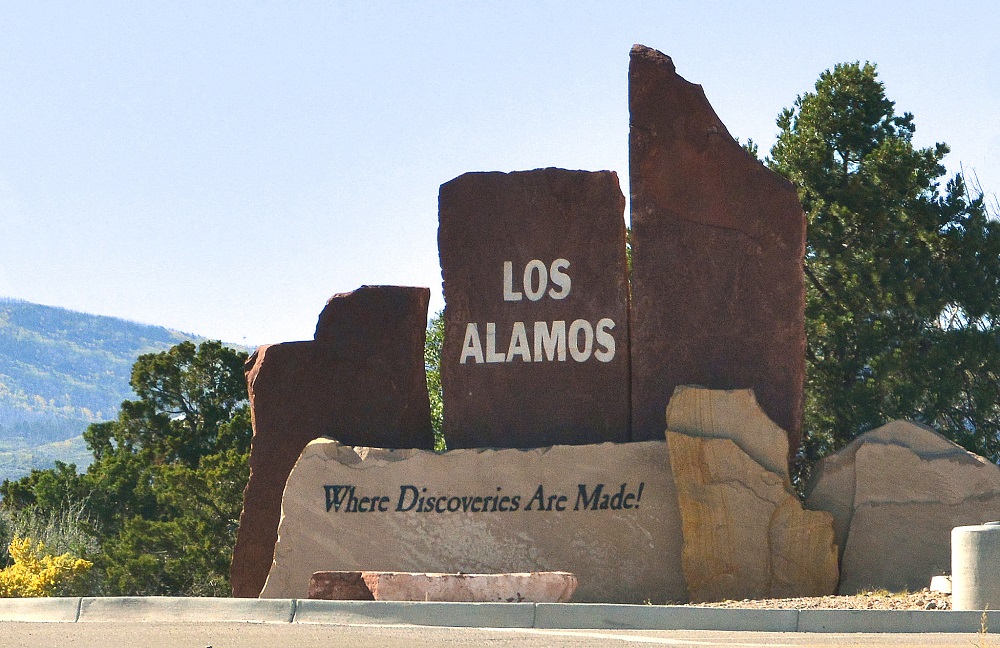
The Department of Energy’s National Nuclear Security Administration (NNSA) will not complete a programmatic study for environmental impacts of increased plutonium pit production at Los Alamos National Labs (LANL) and one other lab located in South Carolina. The decision to not do so drew criticism from Nuclear Watch NM and other groups, who argue such assessments are required by law under the National Environmental Policy Act (NEPA) and an existing court order.
Plutonium pits are the radioactive cores of nuclear warheads where the chemical reactions occur that cause the warhead to detonate. The U.S. made thousands of cores during the Cold War, but pit production has all but stopped in the last thirty years.
Now, the federal government is getting ready to ramp up pit production in order to modernize the U.S. nuclear arsenal and “assure the nation has a safe, secure and credible deterrent,” said Lisa Gordon-Hagerty, the Department of Energy Under Secretary for Nuclear Security and the NNSA Administrator, in a statement. The 2018 Nuclear Posture Review calls for at least 80 plutonium pits to be produced per year by 2030, with a target of 30 pits produced annually at LANL and 50 pits produced annually at Savannah River Site.
Watchdog Groups Claim Nuclear Agency is Moving Forward to Manufacture New Plutonium Bomb Cores in Violation of National Environmental Law and an Existing Court Order
![]()

Pope Frances Calls for Nuclear Weapons Abolition – – Santa Fe Catholic Archdiocese Likely Has Largest Presence of Nuclear Weapons in the World
FOR IMMEDIATE RELEASE, November 24, 2019
Santa Fe, NM – Today, Pope Francis called for the global abolition of nuclear weapons while paying homage to the victims of the bombings of Hiroshima and Nagasaki. Those two cities were both destroyed by atomic weapons designed and produced by the Los Alamos National Laboratory, located in northern New Mexico’s Santa Fe Catholic Archdiocese.
The Holy Father declared:
“With deep conviction I wish once more to declare that the use of atomic energy for purposes of war is today, more than ever, a crime not only against the dignity of human beings but against any possible future for our common home. The use of atomic energy for purposes of war is immoral, just as the possessing of nuclear weapons is immoral, as I already said two years ago. We will be judged on this. Future generations will rise to condemn our failure if we spoke of peace but did not act to bring it about among the peoples of the earth. How can we speak of peace even as we build terrifying new weapons of war?”
Two of the U.S.’ three nuclear weapons laboratories, the Los Alamos and Sandia National Laboratories, are located within the Santa Fe Catholic Archdiocese. Together the two labs spend $4 billion per year on core nuclear weapons design, testing and production programs. In addition, up to 2,500 nuclear weapons are estimated to be held in strategic reserve at the Kirtland Underground Munitions Maintenance and Storage Complex, less than two miles south of the Albuquerque International Airport. That complex is probably the largest repository of intact nuclear weapons in the country and perhaps the world.Continue reading
An evolving nuclear agenda spurs plutonium pit production at LANL
A ‘dirty, dirty process’
BY: KENDRA CHAMBERLAINE | nmpoliticalreport.com

Los Alamos has a starring role in a shift to U.S. nuclear policy that’s two presidential terms in the making. Nuclear watchdog groups in the state are concerned about the United States’ evolving nuclear agenda, which will see a sharp increase in plutonium pit production at Los Alamos National Laboratory (LANL).
LANL recently released its $13 billion expansion proposal to accommodate increased pit production at the site. The expansion is part of a wider push across the country to ramp up the nuclear warhead manufacturing machine, according to Greg Mello, executive director of the Los Alamos Study Group.
Plutonium pits are central to nuclear weaponry. They are the “radioactive cores of modern nuclear weapons,” said Jay Coghlan, executive director of Nuclear Watch New Mexico. He added that the pits themselves are weapons. “It was essentially a plutonium pit that destroyed Nagasaki on August 9, 1945,”
The ramp-up is years in the making, as successive presidential administrations have struggled to address how to modernize the U.S. nuclear stockpile. But nuclear watchdog groups worry an increase in pit production at LANL would have negative repercussions for the region. While LANL has touted the proposed economic benefits of its proposal for the area, activists argue the dangers outweigh the benefits.
Help Stop Plans to “Modernize” WIPP
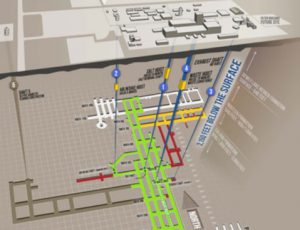
The Waste Isolation Pilot Plant (WIPP), located outside Carlsbad, NM. is the nation’s only geologic repository for defense-generated transuranic waste. The Department of Energy (DOE) is accepting comments on its 2019-2024 “Strategic Plan”, which should be focused on closing WIPP. But the Plan focuses on extending WIPP’s lifetime to 2050 and beyond. WIPP’s disposal phase was extended until 2024 (in 2010), and the last expected year of final closure of the WIPP facility (i.e., date of final closure certification) was to be 2034. There was always a 10-year period for final closure after the disposal operations ceased.
But, instead, the WIPP Strategic Plan is stocked full of new projects that will extend WIPP’s life another 25 years at least. Yet, WIPP officials don’t mention how or when they plan to modify the State Permit with the new proposed date. DOE’s own waste-handling inefficiencies and mistakes have caused this delay that the people of New Mexico are now paying for by having WIPP open longer than planned. We are asking everyone to oppose DOE’s “WIPP Forever” plans by sending in comments. See below.
Sens. Warren, Sanders, Markey call on defense leaders to chill pit production push
Two Democratic presidential candidates believe there is no reason to produce 80 plutonium pits per year, as is planned, and have urged congressional defense leaders to step back and reconsider related legislation, according to a missive reviewed recently by the Aiken Standard.
September 23, 2019 | BY COLIN DEMAREST | aikenstandard.com
In a Sept. 13 letter, U.S. Sens. Bernie Sanders of Vermont and Elizabeth Warren and Ed Markey of Massachusetts described a significantly bolstered pit production mission as “unnecessary, unachievable and ill-advised,” citing an independent analysis that earlier this year cast serious skepticism on the National Nuclear Security Administration’s and U.S. Department of Defense’s recommended path forward.
That report, handled by the Institute for Defense Analyses, listed three cautionary findings in its publicly available summary: Reaching 80 pits per year is possible, but “extremely challenging”; no available option will likely satisfy the demand by deadline; and further risk assessment is needed.
A Congressional Budget Office study released earlier this year very roughly estimated pit production to cost $9 billion over the next decade.
Watchdogs Issue Second Demand for Nation-Wide Environmental Review of Expanded Plutonium Pit Production
Today, lawyers for the Natural Resources Defense Council, Nuclear Watch New Mexico, Savannah River Site Watch and Tri-Valley Communities Against a Radioactive Environment sent a second letter to Department of Energy (DOE) Secretary Rick Perry and Lisa Gordon-Hagerty, the head of the semi-autonomous National Nuclear Security Administration (NNSA). The letter demands a nation-wide programmatic environmental impact statement for the agencies’ proposed expanded production of plutonium pits, the fissile cores or “triggers” of nuclear weapons. Invoking the National Environmental Policy Act (NEPA), the letter concludes:
“…we advise the agencies that timely compliance with NEPA is the best means for the agencies to keep these [expanded plutonium pit production] projects on track, as a failure to rigorously comply with NEPA may necessitate litigation, including if necessary motions for injunctive relief, all of which would likely increase the expense of DOE’s and NNSA’s proposed actions and extend their timelines further. Accordingly, we strongly encourage DOE and NNSA to come into compliance with NEPA by preparing a new or supplemental PEIS for its proposals regarding plutonium pit production, and to do so immediately. If the agencies continue on their current trajectory, we will have no choice but to evaluate all our options to enforce compliance with federal environmental laws.”
As background, on May 10, 2018, the Departments of Defense and Energy jointly announced that plutonium pit production would be expanded from the currently sanctioned level of 20 pits per year at the Los Alamos National Laboratory (LANL) in northern New Mexico to at least 30 pits per year, plus redundant production of at least 50 pits per year at the Savannah River Site (SRS) in South Carolina, which would be a completely new mission there.
Lack Of Safety And Health Priorities Continue To Plague Los Alamos Beryllium Program
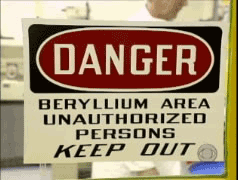
A new assessment finds that Department of Energy (DOE) is not conducting effective oversight of the Los Alamos National Laboratory (LANL) beryllium program, or of safety and health programs in general. In addition, DOE is not maintaining sufficient technical capability and knowledge of site and contractor activities to make informed decisions about hazards and risks. DOE indicated the lack of sufficient safety and health resources has presented a challenge to achieving effective oversight in this area.
The U.S. should carefully and prudently maintain its nuclear weapons stockpile
Defense News reports that “Nuclear gravity bomb and warhead upgrades face new delays” because of new components used in so-called Life Extension Programs (LEPs) to prolong the service lives of existing nuclear weapons. These programs also give existing nuclear weapons new military capabilities. For example, see How US nuclear force modernization is undermining strategic stability: The burst-height compensating super-fuze
The point of this blog is to raise the question of whether these Life Extension Programs really enhance U.S. national security while maintaining the safety and reliability of the nuclear weapons stockpile. In fact, perhaps the crux issue is prudent and conservative maintenance of the stockpile versus increasingly aggressive LEPs.
NukeWatch Recent Related Work
Nothing Found
It seems we can’t find what you’re looking for. Perhaps searching can help.
NukeWatch Past Related Work
| 2020
March 10, 2020 Press Release Energy Dept. Nearly Triples Funding for Plutonium Pit Production Cuts Cleanup in Half But Refuses to Complete New Env. Impact Statement for Los Alamos Lab Santa Fe, NM – Today the Department of Energy’s semi-autonomous nuclear weapons agency, the National Nuclear Security Administration (NNSA), announced that it will not complete a new site-wide environmental impact statement for the Los Alamos National Laboratory (LANL). The last site-wide environmental impact statement was in 2008. April 3, 2020 Press Release DOE Ignores COVID-19 Threat, Diverts Resources to Planning for Nuclear War by Releasing Draft Environmental Study on SRS Plutonium Bomb Plant Today, in the middle of the growing coronavirus pandemic, the U.S. Department of Energy ignored the real national crisis and irresponsibly shifted its focus to planning for nuclear war, revealing plans to construct a Plutonium Bomb Plant (PBP) at the Savannah River Site (SRS) in South Carolina. April 21, 2020 Press Release >120 Groups and Individuals Ask Udall and Heinrich to Extend Public Comment Period on Los Alamos Lab Plutonium Bomb Core Production Santa Fe, NM – Today, on behalf of more than 120 groups and individuals, Nuclear Watch New Mexico sent a letter to New Mexico Senators Tom Udall and Martin Heinrich. It asks them to act upon their own words and demand that the public comment period be extended for plutonium “pit” bomb core production that the National Nuclear Security Administration (NNSA) is fast tracking during the coronavirus epidemic. As sitting members of the Senate Appropriations and Armed Services Committees, Udall and Heinrich are in strong positions to make that demand of NNSA. May 6, 2020 Press Release DOE Repeatedly Asks Safety Board for Time Extensions, Los Alamos Lab Asked for >150 Cleanup Milestone Extensions, But During Pandemic NNSA Rejects NM Senators’ Request for Extension of Public Comment on Plutonium Bomb Core Production Santa Fe, NM – Lisa Gordon-Hagerty, head of the National Nuclear Security Administration (NNSA), has rejected a request by New Mexico Senators Tom Udall and Martin Heinrich to extend the public comment period on expanded plutonium “pit” bomb core production because of the COVID-19 pandemic. In contrast, even in normal times NNSA and its parent Department of Energy routinely ask other government agencies for major time extensions when it comes to cleanup and independent oversight. Read/Download the Full Press Release HERE June 24, 2020 Press Release WATCHDOG GROUPS FILE LEGAL PETITION WITH ENERGY DEPT: Allege Agency is Slow Walking “Record of Decision” Re: Plutonium Bomb Core Production to Prevent Judicial Review; Stage Set for Litigation on Expanded Production Today, legal counsel for the public interest groups Nuclear Watch New Mexico, Tri-Valley Communities Against a Radioactive Environment, Savannah River Site Watch and the Natural Resources Defense Council took a significant step toward a potential legal challenge to the U.S. Department of Energy’s plans for expanded production of plutonium cores, or “pits,” for new-design nuclear weapons. Read/Download the Full Press Release HERE September 1, 2020 Press Release NNSA Slams Door Shut on Public Accountability While Ramming Through Expanded Plutonium “Pit” Bomb Core Production Santa Fe, NM – The National Nuclear Security Administration (NNSA) announced today that it will not prepare a new site-wide environmental impact statement for the Los Alamos National Laboratory (LANL). With this decision NNSA is slamming the door shut on public accountability while it rams through expanded plutonium “pit” bomb core production at the Lab. NNSA is relying upon outdated studies from 2008 to justify pit production. Since that time the agency has wasted billions of taxpayers’ dollars, another catastrophic wildfire threatened the Lab, serious deep groundwater contamination was discovered and LANL has had chronic nuclear safety incidences with plutonium that it can’t seem to fix. November 5, 2020 Press Release DOE Issues Controversial Decision to Pursue a Plutonium Bomb Plant (PBP) at Savannah River Site (SRS); Inadequate Environmental Review and Lack of Justification for Production of 50 or More “Pits” per Year to Modernize Entire Nuclear Weapons Stockpile Open to Legal Challenge The U.S. Department of Energy (DOE) today issued a formal decision that it will pursue a massive Plutonium Bomb Plant (PBP) at the DOE’s Savannah River Site (SRS) in South Carolina, in order to produce plutonium “pits,” or cores, for nuclear warheads. The provocative decision, which adds fuel to concerns about a new nuclear arms race with Russia and China, drew immediate opposition from public interest groups near DOE sites in South Carolina, New Mexico and California. 2019 June 10, 2019 Press Release Federal Government Meets Watchdogs’ Demand for Environmental Review of Expanded Plutonium Pit Production In a victory for transparency and legal compliance by the government, the U.S. Department of Energy’s National Nuclear Security Administration (NNSA) today published a “Notice of Intent” in the Federal Register to complete environmental reviews on its controversial proposal to expand plutonium “pit” production for new and refurbished nuclear weapons. Read/Download the Full Press Release HERE June 4, 2019 Press Release Noted Environmental Lawyers Warn Government Not to Expand Production of Plutonium Bomb Cores in Violation of National Environmental Policy Act and Public Review On behalf of three public interest organizations - Nuclear Watch New Mexico, Tri-Valley Communities Against a Radioactive Environment and Savannah River Site Watch – attorneys for the law firm of Meyer Glitzenstein & Eubanks and the Natural Resources Defense Council recently sent a 16-page letter to Lisa Gordon-Hagerty, head of the National Nuclear Security Administration (NNSA). The detailed letter warns the nuclear agency to not proceed with aggressive plans to expand plutonium pit production without first meeting its legal requirements for timely public review and comment under the National Environmental Policy Act. Read/Download the Full Press Release HERE May 31, 2019 Press Release Faulty Radioactive Liquid Waste Valves Raise Crucial Plutonium Pit Production and Safety Board Issues Last Wednesday, facility operations personnel entered a service room and noticed a leak emanating from a valve on the radioactive liquid waste (RLW) system. Upon subsequent visual inspection by a radiological control technician, RLUOB engineers believe that this valve, and 6 similar valves, may be constructed of carbon steel. The RLW system handles radioactive liquid waste streams from chemistry operations that include nitric and hydrochloric acids—carbon steel valves would be incompatible with these solutions. The suspect valves are also in contact with stainless steel piping, which would create another corrosion mechanism. RLUOB management plans to drain the affected piping sections and develop a work package to replace all of the suspect valves. They will also confirm the valve materials and if shown to be incorrect, investigate the cause of this failure in the design, procurement, and installation processes. The valves were installed in 2013 as part of a modification to add straining and sampling capabilities that were not in the included in the original design. [Please note that DNFSB reports are posted a few weeks later than dated.] This immediately raises two crucial issues: 1) the National Nuclear Security Administration’s (NNSA’s) plans for expanded plutonium pit production; and 2) the current attempt by the Department of Energy to restrict Safety Board access to its nuclear weapons facilities. Read/Download the Full Press Release HERE |
| 2018
November 16, 2018 Fact Sheet Expanded Plutonium Pit Production for U.S. Nuclear Weapons Plutonium pits are the radioactive cores or “triggers” of nuclear weapons. Their production has always been a chokepoint of resumed industrial-scale U.S. nuclear weapons production ever since a 1989 FBI raid investigating environmental crimes shut down the Rocky Flats Plant near Denver. In 1997 the mission of plutonium pit production was officially transferred to its birthplace, the Los Alamos National Laboratory (LANL) in northern New Mexico, but officially capped at not more than 20 pits per year. However, in 2015 Congress required expanded pit production by 2030 whether or not the existing nuclear weapons stockpile actually needs it. This will support new military capabilities for nuclear weapons and their potential use. Read/Download the full fact sheet pdf HERE
Watchdog Groups Claim Nuclear Agency is Moving Forward to Manufacture New Plutonium Bomb Cores in Violation of National Environmental Law and Public Review Nuclear Watch New Mexico, Savannah River Site Watch, and Tri-Valley CAREs sent a letter of demand to the U.S. Department of Energy’s National Nuclear Security Administration (NNSA) to inform the government that its plan to quadruple the production rate of plutonium bomb cores is out of compliance with the National Environmental Policy Act (NEPA). NNSA’s premature plan to quadruple the production rate of plutonium bomb cores (“pits”), the heart of all US nuclear weapons, is out of compliance with requisite environmental law, the groups argue, as NNSA has failed to undertake a legally-mandated programmatic review and hold required public hearings. View/Download the entire press release HERE |




